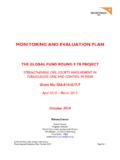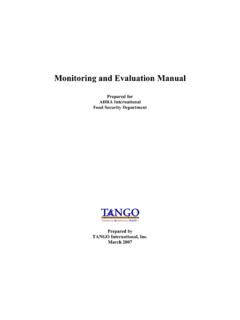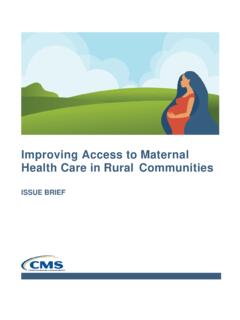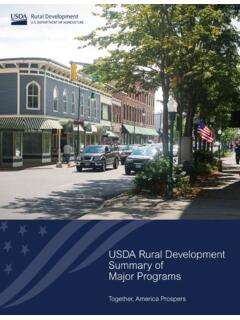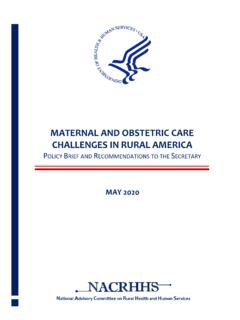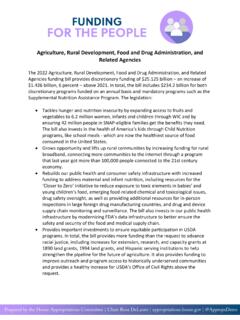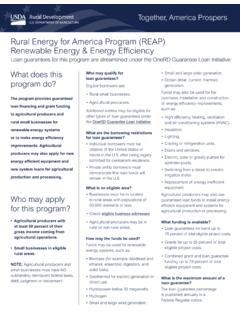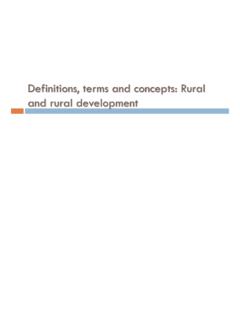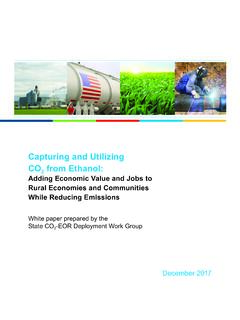Transcription of Participatory Rural Appraisal - FSN) Network
1 I Training Manual on Participatory Rural Appraisal Compiled by Simon Adebo (Freelance Consultant) December 2000 Addis Ababa. ii 1. INTRODUCTION .. 3 2. PARTICIPATION .. 4 Definition .. 4 Typology of participation .. 4 3. Participatory Rural Appraisal ,.. 6 Biases of Rural development tourism .. 6 Shortcoming (defects) of questionnaire methods .. 7 Activist Participatory 7 Applied Anthropological 8 Agro-ecosystem Analysis .. 8 Farming systems research (FSR) .. 9 4. RAPID Rural Appraisal .
2 9 Comparison of PRA and RRA .. 10 PRA principles and 10 PRA has three pillars.. 10 Methods and role reversals .. 10 Scope of PRA and types of PRA .. 11 5. PRA TECHNIQUES AND 12 Maps and Models Diagrams .. 12 Community Sketch 13 Transect walk .. 14 Mobility diagram .. 16 Venn Diagram (Institutional analysis) .. 16 Time related data 17 Time Lines .. 17 Trend Lines .. 18 Seasonal 20 Gender daily calendar.
3 21 Ranking and scoring .. 22 Pair wise 24 Wealth Ranking .. 25 Proportional piling .. 26 Semi structured interviews (SSI) .. 27 Types of 27 Direct observation .. 28 Using secondary 28 Interview guides and 28 Beginning the 28 Directing the flow of 29 Recording the interview .. 29 Closing the interview .. 30 6. Participatory PROBLEM ANALYSIS .. 30 7. GUIDELINES FOR FIELD PRA.
4 32 Steps in Participatory planning .. 32 Field Exercise and Presentation of 33 Guidelines for Analyzing PRA findings .. 33 PRA are good for: .. 34 PRA is not very useful for: .. 34 31. INTRODUCTION The PLA/PRA approach is used with the following assumptions: 1. Rural communities form active foundation for Rural development 2. Communities need committed local leaders to stir up their development 3. Communities have knowledge and information but it needs to be organized 4. Communities have resources but they need to be mobilized.
5 They can introduce projects, acting primarily on their own resources. 5. Community organizations are among the many, which are under utilized resources available for development efforts. 6. External units such as Government technical experts and extension workers, NGOs, and international organizations often can provide substantial technical, financial or managerial assistance that is critical to Rural communities. 7. Thus, PLA/PRA brings together on the one hand, development needs defined by the community members and on the other, skills of Government, donor agencies and NGOs.
6 It integrates traditional knowledge systems and external technical knowledge in the development process. PRA helps communities to: Mobilize their human and natural resources Define problems Consider previous successes and failures Evaluate priorities and opportunities Prepare a systematic and site specific plan of action (CPA) The objectives of the PRA workshop: The content included in the PLA/PRA training are simple and do not require high caliber or mathematical thinking. But require minds which are prepared to accept a new way of learning, a new of doing things and that we have limited knowledge of something.
7 The ultimate aim of PLA/PRA workshop is: 1. To build up a permanent people first attitudes in the minds of the participants. To show that people are capable agents to change their own lives but require limited out side assistance. 2. To establish a notion of respect to the people s knowledge in the life of professionals and their institutions. 3. To provide simple analytical tools to analyze Rural situations. 4. To show some of the analytical tools to the community in the field setting and understand their suitability to farmer situation.
8 5. To enhance participant s ability to plan with the community. 42. PARTICIPATION Definition * The involvement of significant number of persons in situations or actions which enhance their well-being, their income, security, self esteem. * Giving more attention to decentralized development. * Recognition of the need to understand and use local approaches to development. Other examples of definitions: A) Participation is considered a Voluntary Contribution by the people to one or another of public programs supposed to contribute to national development, but the people are not expected to take part in shaping the program or criticizing its content.
9 B) Participation means .. in its broadest sense, to Sensitize people and, thus, to increase the receptivity and ability of Rural people to respond to development programs, as well as to encourage local initiatives. C) With regard to Rural development.. participation includes people s involvement in decision making processes, implementing programs .. their sharing in the benefits of development programs, and their involvement in efforts to evaluate such programs. D) Popular participation in development should broadly understood as the active involvement of people in decision-making process in so far as it affects them.
10 E) Community involvement means that people, who have both the right and duty to participate in solving their own problems, have greater responsibilities in assessing their needs, mobilizing local resources and suggesting new solutions, as well as creating and maintaining local organizations. F) Participation considered to be an active process, meaning that the person or group in question takes initiatives and asserts his/her or its autonomy to do so. G) The organized efforts to increase control over resources and regulate institutions and movements of those hitherto excluded from such control.
